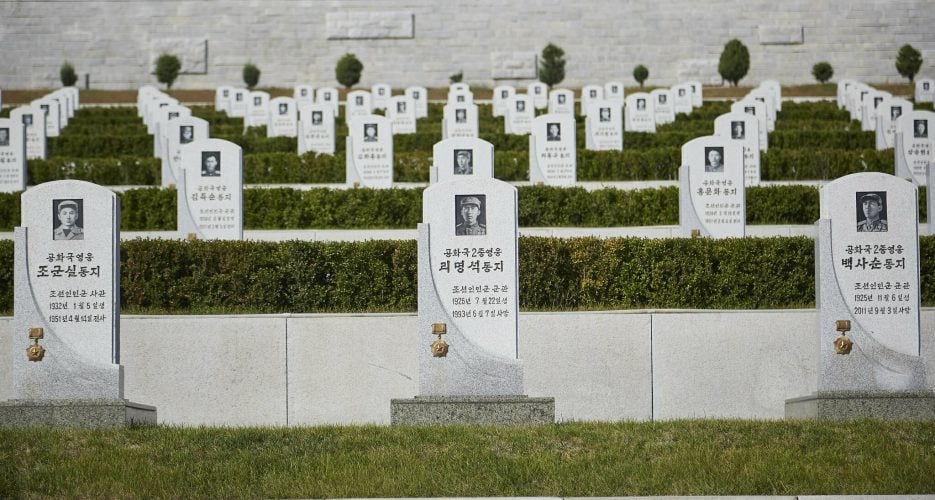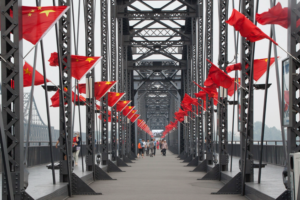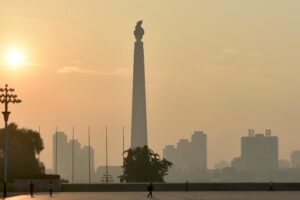In early June, in a hearing with the U.S. House Foreign Affairs Committee, Robert King, Special Envoy on Human Rights to North Korea, outlined a number of conditions on food aid for North Korea. King explained that food aid sent to North Korea would be sent in small amounts over a long period of time, comprised of ‘less-desirable’ foods and measures would be taken to prevent the military from ‘hogging’ any of the aid.[1] Previous humanitarian relief operations in North Korea have ended with sub-par results, such as the North’s expulsion of aid workers in 2009 which forced relief agencies to leave 20,000 tonnes of food unattended. As such, it is understandable that King is dedicated to monitoring the situation with greater vigilance. Yet the realities of the DPRK will undoubtedly frustrate King’s chances of successfully implementing his policy.
King’s team has overlooked the scope of the KPA’s role in society. The rise of Songun Jeongchi (Military-First Politics) cemented the military’s position as an integral part of the North Korean way of life. The Korean People’s Army (KPA) is not a subservient professional army, in the same way China’s People’s Liberation Army (PLA) has come to be over the years.[2] Although the details of factionalism within China’s Communist Party (CCP) are debatable, the PLA has devolved into a tool of the CCP rather than an extension thereof. Conversely, the KPA’s role has expanded to include various roles in politics as well as in the personal lives of the citizens. It is home to 20% of the men between the ages of 17 and 54 and the total number of military personnel is thought to be around 1.2 million.[3] It recruits the nation’s best and brightest scientists and engineers, is responsible for ideological dissemination, is a unifier of generations, and is made up of the sons and daughters of millions of families.[4]
In early June, in a hearing with the U.S. House Foreign Affairs Committee, Robert King, Special Envoy on Human Rights to North Korea, outlined a number of conditions on food aid for North Korea. King explained that food aid sent to North Korea would be sent in small amounts over a long period of time, comprised of ‘less-desirable’ foods and measures would be taken to prevent the military from ‘hogging’ any of the aid.[1] Previous humanitarian relief operations in North Korea have ended with sub-par results, such as the North’s expulsion of aid workers in 2009 which forced relief agencies to leave 20,000 tonnes of food unattended. As such, it is understandable that King is dedicated to monitoring the situation with greater vigilance. Yet the realities of the DPRK will undoubtedly frustrate King’s chances of successfully implementing his policy.
King’s team has overlooked the scope of the KPA’s role in society. The rise of Songun Jeongchi (Military-First Politics) cemented the military’s position as an integral part of the North Korean way of life. The Korean People’s Army (KPA) is not a subservient professional army, in the same way China’s People’s Liberation Army (PLA) has come to be over the years.[2] Although the details of factionalism within China’s Communist Party (CCP) are debatable, the PLA has devolved into a tool of the CCP rather than an extension thereof. Conversely, the KPA’s role has expanded to include various roles in politics as well as in the personal lives of the citizens. It is home to 20% of the men between the ages of 17 and 54 and the total number of military personnel is thought to be around 1.2 million.[3] It recruits the nation’s best and brightest scientists and engineers, is responsible for ideological dissemination, is a unifier of generations, and is made up of the sons and daughters of millions of families.[4]
Become a member for less than $4 per week.
Unlimited access to all of NK News: reporting, investigations, analysis
The NK News Daily Update, an email newsletter to keep you in the loop
Searchable archive of all content, photo galleries, special columns
Contact NK News reporters with tips or requests for reporting
Get unlimited access to all NK News content, including original reporting, investigations, and analyses by our team of DPRK experts.
Subscribe now
All major cards accepted. No commitments – you can cancel any time.










